
Cutting-edge therapies can help move the treatment landscape forward, but basic treatment and prevention, such as smoking cessation, are still valuable means of addressing non–small cell lung cancer (NSCLC).

Cutting-edge therapies can help move the treatment landscape forward, but basic treatment and prevention, such as smoking cessation, are still valuable means of addressing non–small cell lung cancer (NSCLC).

Jonathan Thompson, MD, MS, explains how financial, insurance, and socioeconomic barriers limit equitable access to biomarker testing and advanced therapies, underscoring the need for provider advocacy and systemic support.
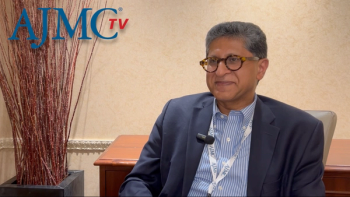
Ravi Vij, MD, MBA, explains how insurance-related delays in CAR T approval slow treatment initiation, increase interim therapy costs, and contribute to patient burden.
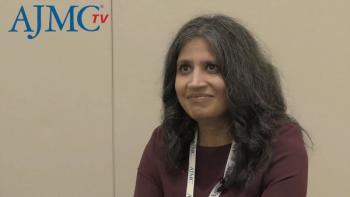
Treatment challenges that Anasuya Gunturi, MD, PhD, encounters in her work at Lowell General Hospital include language differences and confusion about scheduled appointments.
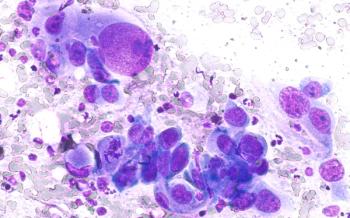
In advanced non–small cell lung cancer (NSCLC), discontinuing immunotherapy after 2 years can maintain durable responses while reducing financial and toxicity burdens, with decisions guided by residual disease testing and shared decision-making, explained Jonathan Thompson, MD, MS.

Making treatment for non–small cell lung cancer (NSCLC) accessible to a wide range of the population can help to improve outcomes from and knowledge of the condition.

Ravi Vij, MD, MBA, discusses the logistical differences between administering CAR T-cell therapy and bispecific antibodies, and how emerging CAR T technologies could affect patient access.
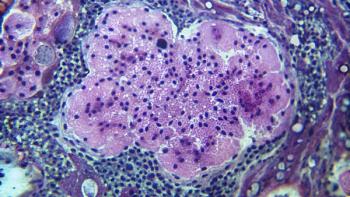
Jonathan Thompson, MD, MS, explains that adjuvant immunotherapy benefits patients with early-stage lung cancer with incomplete neoadjuvant response, while treatment decisions in the adjuvant setting must weigh efficacy, toxicity, and limited evidence.
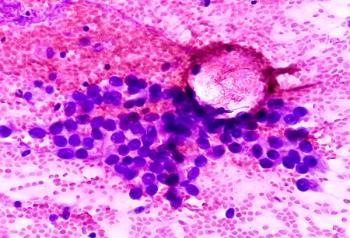
Jonathan Thompson, MD, MS, highlighted that reducing delays in molecular testing and treatment initiation is critical for improving lung cancer outcomes, and that clinical trial data suggest immunotherapy duration can often be safely de-escalated in patients who achieve a complete pathologic response.

A panel held during the Institute for Value-Based Medicine event in Chicago on August 14, 2025, included discussions of access to biomarker testing and perioperative treatment in patients with non–small cell lung cancer (NSCLC).
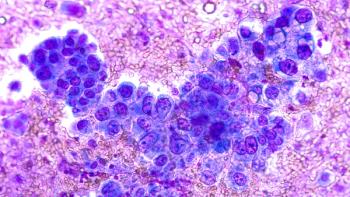
Jonathan Thompson, MD, MS, emphasized that broader molecular testing in early-stage non–small cell lung cancer (NSCLC) is essential to guide perioperative treatment decisions, while selective retesting at progression can identify resistance mutations or new targets to optimize value-based care.
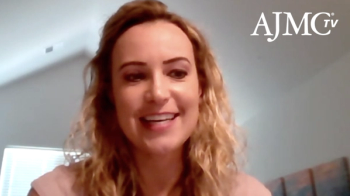
Emilie Aschenbrenner, PharmD, BCOP, outlines how Froedtert Health and the Medical College of Wisconsin use outpatient-based care models, standardized protocols, and collaborative partnerships to improve cost-effectiveness, accessibility, and patient experience.

Jonathan Thompson, MD, MS, emphasized that comprehensive biomarker testing with next-generation sequencing and PD-L1 analysis—implemented as reflex testing at biopsy—is essential to guide precision therapy in lung cancer and to address persistent disparities in timely, equitable access to care.
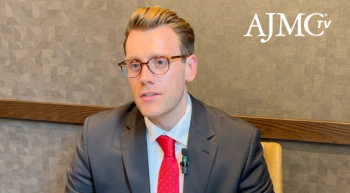
Clayton Irvine, PharmD, MBA, MS, discusses how pharmacists are essential to advancing payer–provider collaboration in value-based care by shaping formularies, standardizing drug reviews, leveraging real-world evidence, and leading pilot programs to optimize patient outcomes and cost-effectiveness.

Despite its potential, incorporating new treatments like T-DXd into a first-line setting faces several barriers, explains Michael Hassett, MD, MPH, chief quality officer at Dana-Farber Cancer Institute in Boston.
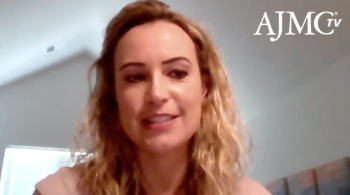
Emilie Aschenbrenner, PharmD, BCOP, highlights how measurable residual disease (MRD) testing can support value-based care in multiple myeloma by guiding personalized treatment intensity, potentially reducing costs and improving outcomes.
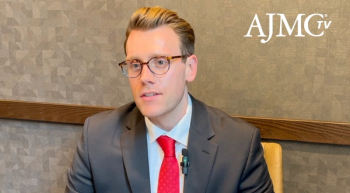
Clayton Irvine, PharmD, MBA, MS, emphasized that optimizing value-based access to cell and gene therapies requires standardized care protocols, coordinated transitions between care settings, careful evaluation of prior authorization and financial assistance options, and formulary decisions that balance clinical outcomes with both direct and indirect costs to patients and institutions.
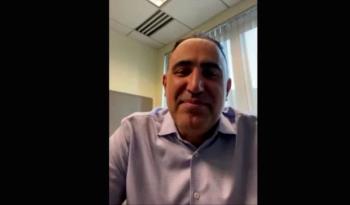
Amir Fathi, MD, leukemia specialist at Massachusetts General Hospital, discusses the importance of advocacy by both patients and their treatment team and key distinct toxicities that require vigilance.

Emilie Aschenbrenner, PharmD, BCOP, discusses how integrating CD38-targeted therapies into first-line treatment for transplant-ineligible multiple myeloma requires balancing clinical benefit, cost, and insurance coverage.

Clayton Irvine, PharmD, MBA, MS, discusses strategies to address payer-driven biosimilar and prior authorization challenges through integrated digital solutions, while advocating for flexible, regularly reviewed treatment pathways supported by molecular tumor boards and artificial intelligence to balance standardization with personalized, biomarker-driven oncology care.

Clayton Irvine, PharmD, MBA, MS, explains that leveraging high-quality, real-world data; cross-institutional collaboration; standardized care pathways; advanced technologies; and integrated academic–community oncology partnerships can improve treatment decision-making, reduce financial toxicity, address drug shortages, and optimize infusion center efficiency.
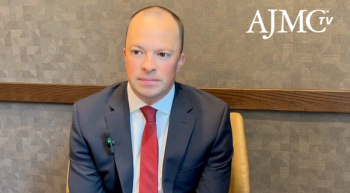
Jason Bergsbaken, PharmD, MBA, BCOP, highlights the growing role of real-world data in validating or de-implementing therapies, the need for vigilant postapproval outcomes monitoring, and the value of academic–community oncology partnerships.
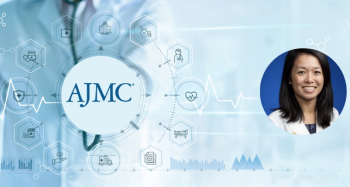
Angel Qin, MD, identified the critical role of immunotherapy timing and shared decision-making in small cell lung cancer while also addressing the need for more broadly applicable treatments and personalized care.

Recent clinical trials like ADRIATIC and IMforte are shaping the future of small cell lung cancer (SCLC) treatment, explained Angel Qin, MD. She also emphasized the growing role of immunotherapy in adjuvant and maintenance therapies.

In this first part of an interview with The American Journal of Managed Care®, Julia Rotow, MD, thoracic oncologist at Dana-Farber Cancer Institute, discusses the critical need to test for biomarkers to afford patients the chance to benefit from recent treatment advances.

At the recent regional Institute for Value-Based Medicine® event in Boston, Anasuya Gunturi, MD, PhD, Lowell General Hospital, was a panelist for the discussion, “Evolving Breast Cancer Care: Addressing Unmet Needs Across the Patient Journey.”

Michael Hassett, MD, MPH, Dana-Farber Cancer Institute, reflects on the impact of HER2 identification on the breast cancer treatment continuum.

Rebecca Chacko, MD, discussed exciting advancements in breast cancer care and the future role of emerging therapeutic strategies for early recurrence detection, as part of her panelist role at the Detroit Institute for Value-Based Medicine.

Rebecca Chacko, MD, discusses key breast cancer care challenges, including treatment access delays and the importance of open patient communication, as highlighted at the Detroit Institute for Value-Based Medicine session on unmet needs.
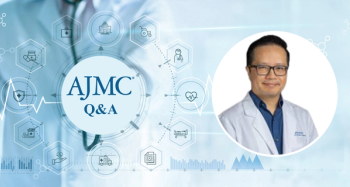
David Nguyen, MD, medical oncologist with Tufts Medicine and Lowell General Hospital, discusses the evolving landscape of advanced cancer treatments like chimeric antigen receptor T-cell therapy and bispecific antibodies

259 Prospect Plains Rd, Bldg H
Cranbury, NJ 08512
© 2025 MJH Life Sciences®
All rights reserved.
